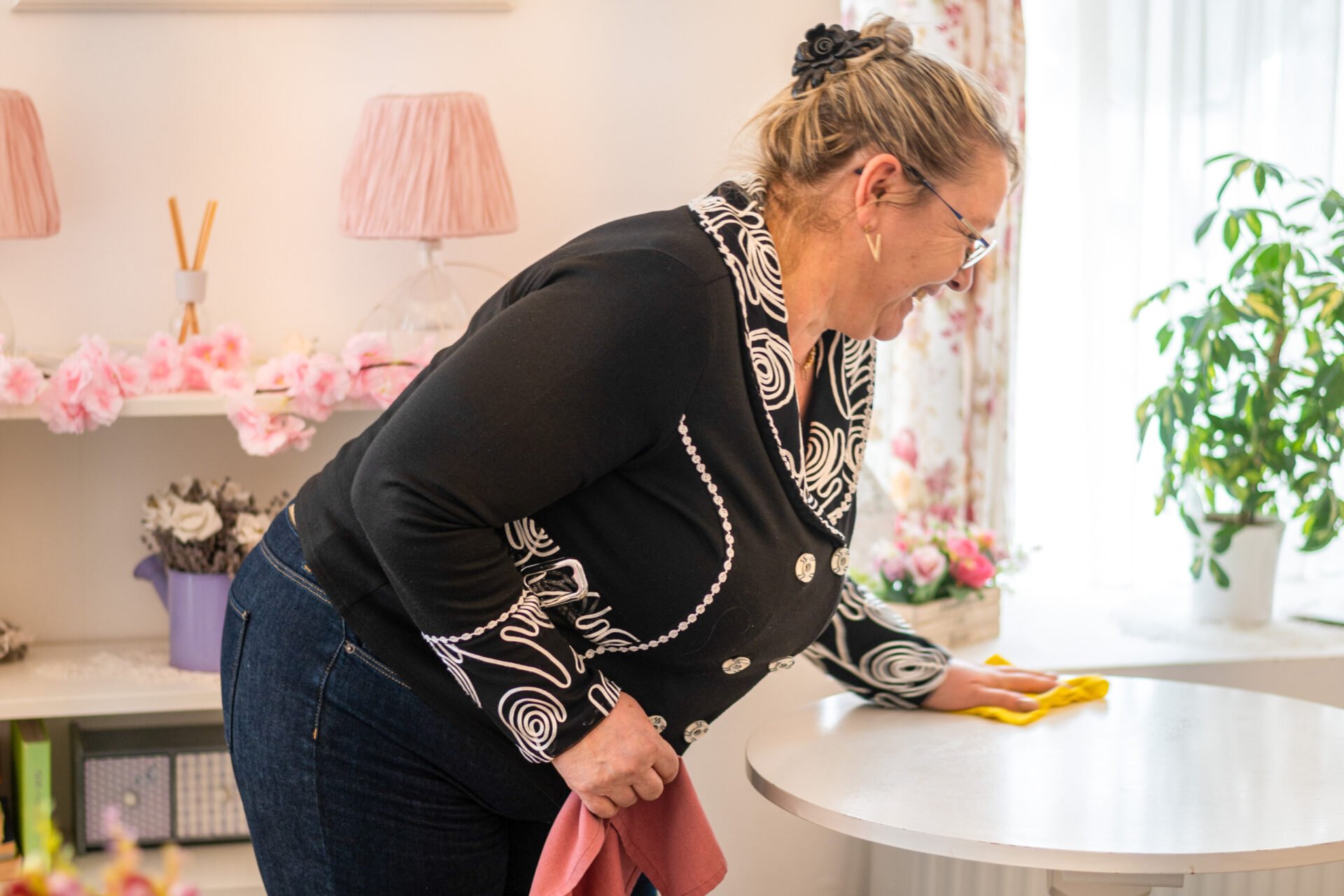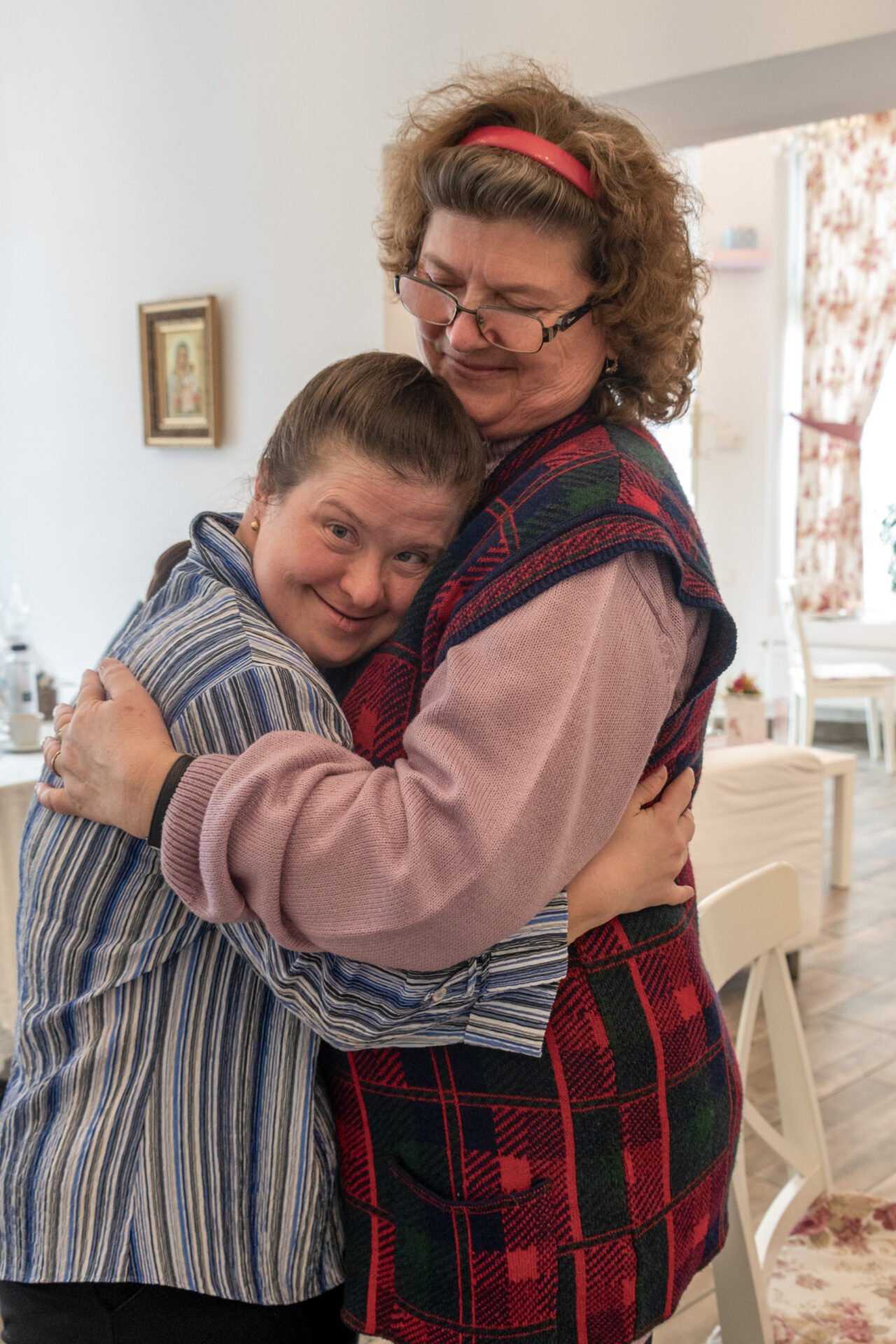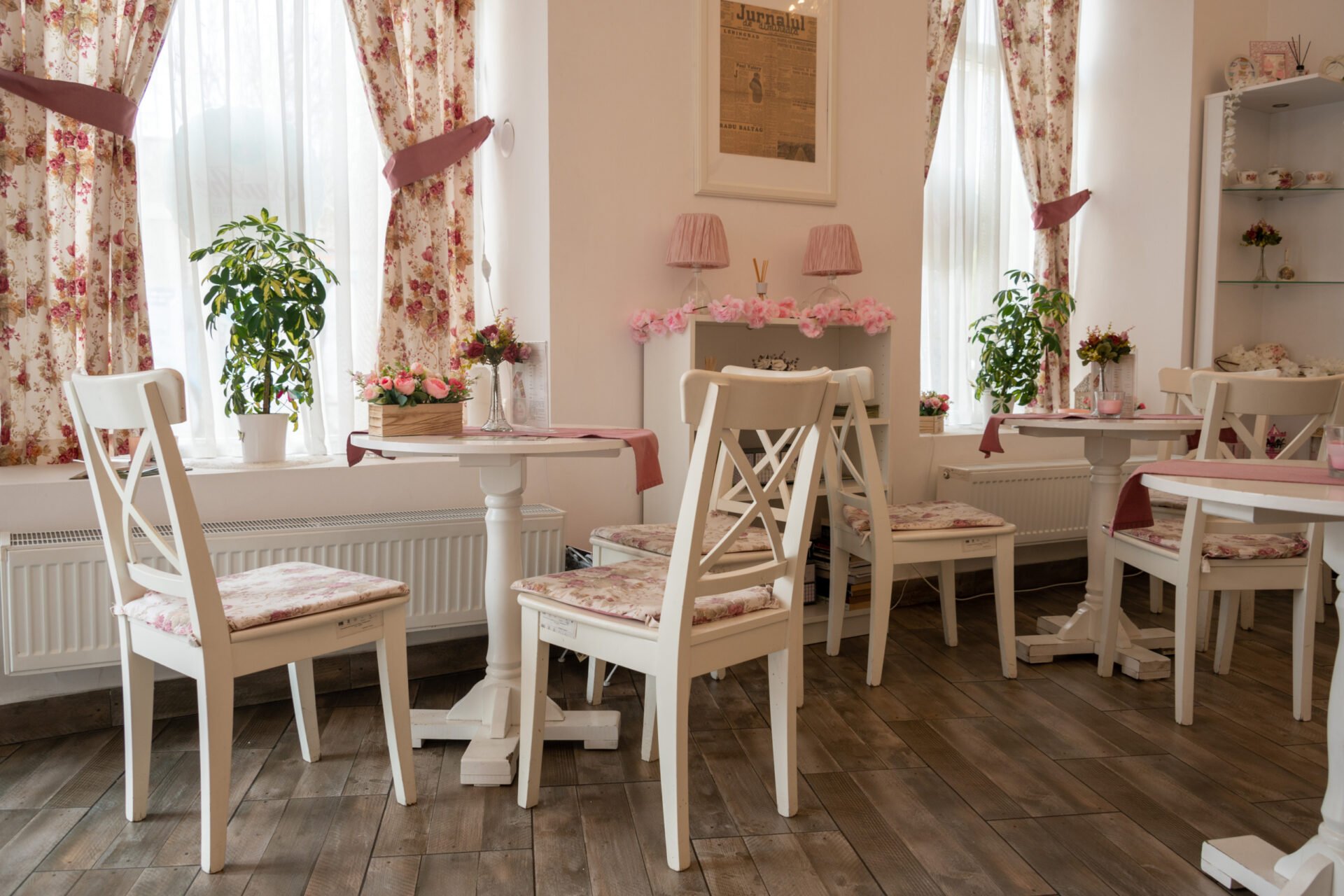Words: Ina Țăranu-Hofnăr
Photos: Silviu Paun
August 2023
On my first visit to SanThé, I feel like I’ve entered someone’s living room. I don’t know if it’s the small space, the flowery curtains or the numerous lights that give such a cozy vibe to the place, but I love it. My waitress is Mădălina. She is wearing a white t-shirt, black pants and a gray apron with a colorful heart woven onto it. Her hair is pulled back in a ponytail and several red barrettes keep her hair away from her face.
She asks me what I would like to drink. I respond by asking her about her favorite tea. “The tea of love!” she says, giggling. Behind her, her mother tells me they don’t have this tea and starts listing the available specialties: mint, green, black, jasmine, etc. I tell her I would still like the tea of love. Mădălina sets off triumphantly towards the bar, and her mother follows her, with uncertain steps. A few minutes later, Mădălina brings me a small porcelain teapot with a reddish liquid. I am unsure if it is a berry or a rooibos blend, but it is delicious. Her face lights up with a huge smile as I express my enjoyment.
Mădălina Marin is one of the nearly 30 people with Down syndrome that make part of the staff of SanThé, the first teahouse in Romania where people with this disability serve – more than a half of whom are also Olympic champions. In the heart of Bucharest, on Lipscani street, this little-known tea shop is quietly making a big difference offering tea, coffee, and cakes sprinkled with essential lessons of dignity, perseverance, and love.
Georgeta Bucur runs the teahouse. She is also the founder and president of a Down’s syndrome association in Bucharest. From day one, her objective was ambitious: she wanted to create an inclusive and safe space for people with disabilities, validating their place within society.
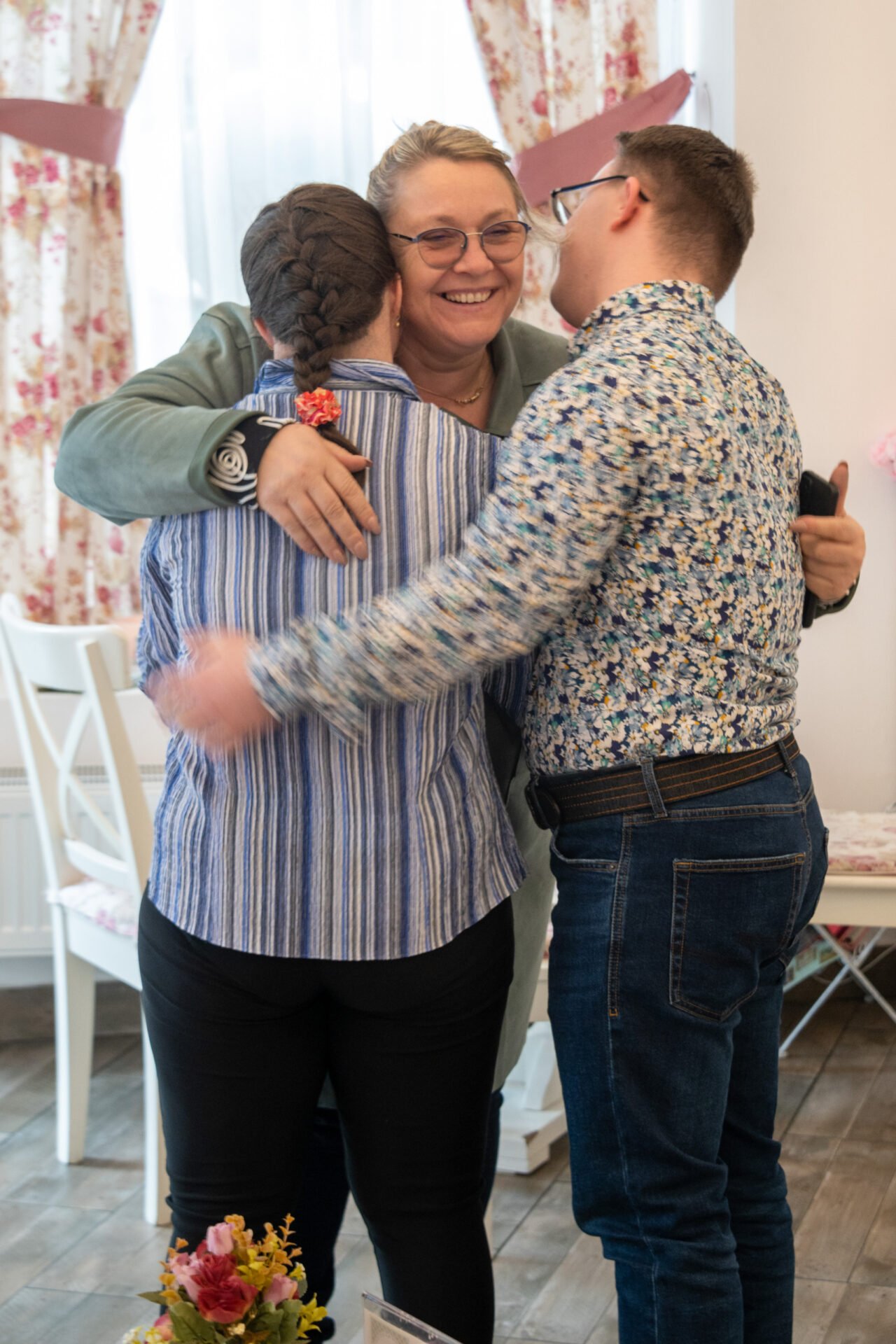
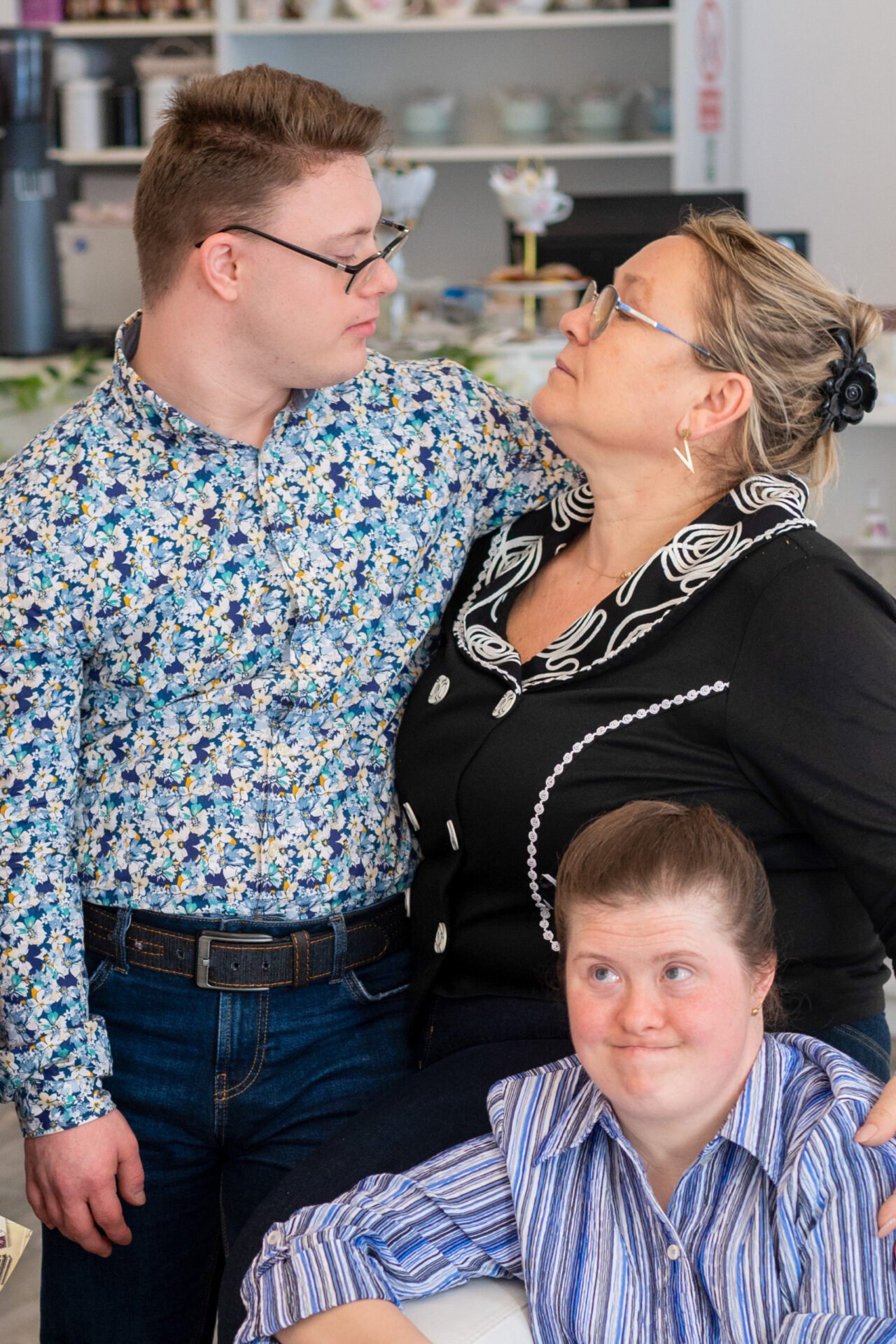
“Limits Down, Abilities Up!”
Georgeta learned the lessons of inclusion and tolerance from the best teacher she has ever had – her son. Her second child, Theo, was born in 2001 with Down syndrome. The birth of a child with a disability meant a 180-degree change in her life. She resigned from a comfortable job at a bank to become Theo’s personal assistant, giving up an attractive salary for the 2000 lei (US$443) she receives monthly from the state.
Georgeta says it was not easy for her to raise Theo in Bucharest: “When he was little, and I was riding the tram with him, there were people who did not know what Down syndrome was. Some would pull their children away from him, fearing their child might catch it.” She soon realized Theo needed a community of young people like him. And she, in turn, needed other parents who knew what it means to raise a child with Down syndrome.
Nine years ago, with her husband and eldest daughter, she decided to found the Down Plus Bucharest Association, which she chairs. The slogan, “Limits Down, Abilities Up!” speaks about its core values: developing the abilities of people with Down syndrome through creative and sporting activities, and changing their perception in society. “I didn’t know how to act other than a mother,” confesses Georgeta. “I looked at the members in our association: what they need, what they like, what talents they have, and what they would like to do.”
The experience of being Theo’s mother led to the SanThé project. Georgeta remembers that when her son was little, he liked to play the waiter: “He would come with a tray in his hand and a napkin on his arm, like a real waiter. He had a notebook to take our order. Even though it was from simple play, I saw that it was possible to make it a reality, so I moved onto the next step.”
A discussion followed with Cosmina Simiean, the director general of the General Directorate of Social Assistance of the Municipality of Bucharest (DGASMB). They had carried out projects together before, so when Georgeta explained to Cosmina her idea, she quickly jumped on board, and told her about a free space they owned on Lipscani Street. The SanThé teahouse was first opened in 2015 as a social economy project, with European funds. But while the location initially employed people from vulnerable groups (young people who grew up in the child welfare system, people of Roma ethnicity, and women over 45 years old who struggle to find work), the pandemic paused the initiative, and the space had to close.
Cosmina suggested that DGASMB could offer Down Plus Association the space for free, in exchange for volunteers managing the teahouse’s logistics and operation. And things took off from there.
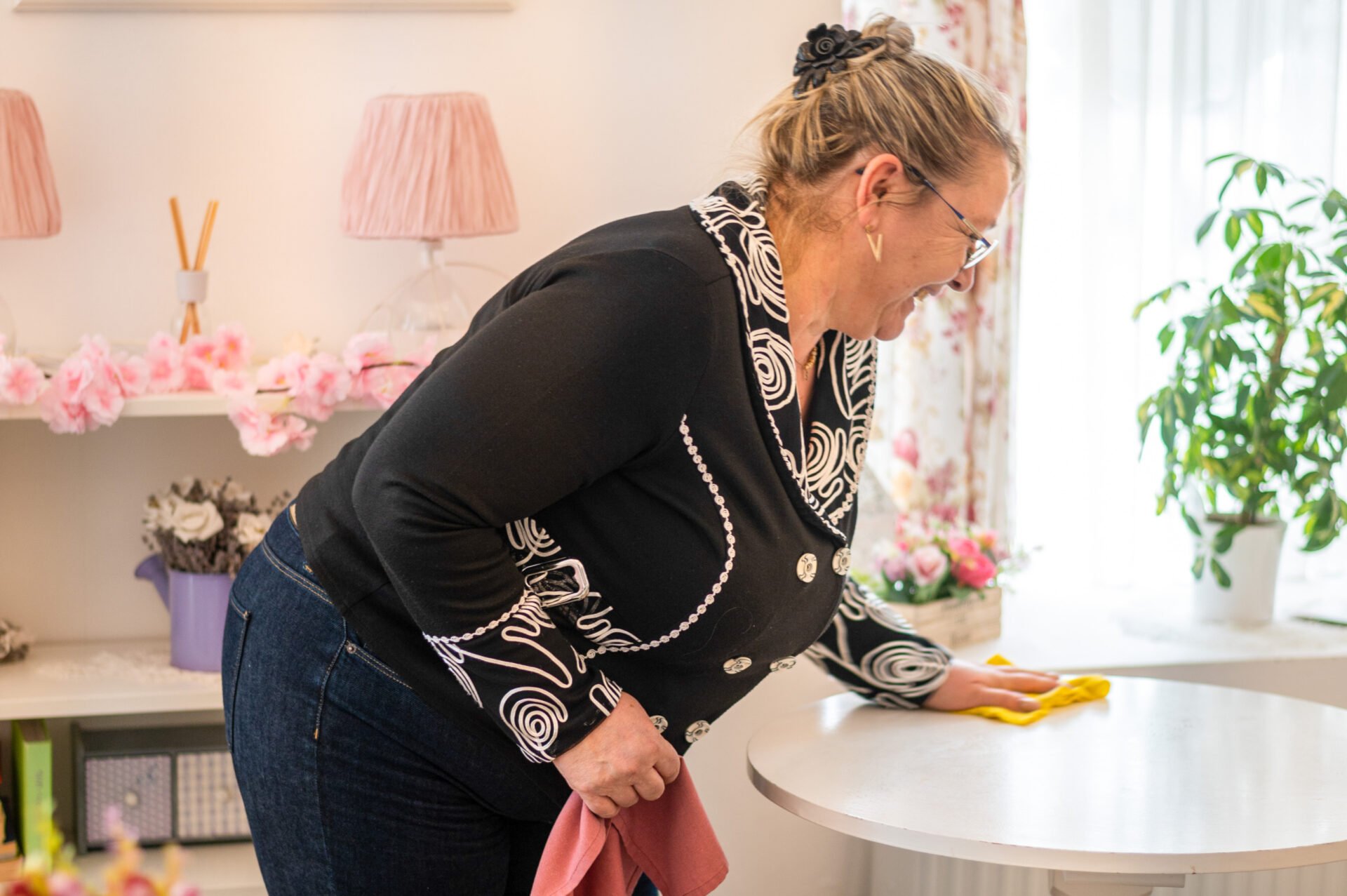
Involuntarily Volunteers
“We sorted out the tearoom, cleaned, took down the curtains, and washed the windows. As the opening day approached, I worked with the new staff and tried to teach them how to make tea and interact with the customers. About two or three days before the opening, I realized we didn’t have a bartender. What shall we do? We didn’t have the budget to hire someone. And then the idea came to us: we, the parents, would do the work.” Georgeta remembers the enthusiasm with which they all approached the project. “That’s how we organized ourselves. It worked out well!”
SanThé reopened its doors in June 2021. Every day from Thursday to Sunday, two young people with Down syndrome and their parents work in rotation. It’s usually the mothers who sit at the bar, prepare drinks or clean but some of the fathers also come to give a helping hand. Everything from the cleaning products to the drinks served, is paid for by donations.
Everyone working here is a volunteer: nobody gets paid for the hours they spend at the teahouse. Georgeta explains that this is because, according to Romanian law, the moment you are employed, your status as a person with disability gets lost, even if it’s of the first degree.“ “You have to go from one committee to another, in order to prove that you have a disability all over again. It’s much too complicated,” she says.
From a financial point of view, the employment of people with disabilities under the current legislative context does not make sense either. “For example, if a person with disability works part-time, he would probably be paid around 800 lei (US$177) per month. At the moment, the social allowance is 1125 lei (US$249) per month. So, in order to work for lower pay, he would lose his disability status (and the benefits that come with it, like free public transport) and those 1125 lei, which are hard to get in the first place,” explains Georgeta.
Yet, she believes that SanThé is successful for everyone involved: “Young people with a disability now feel they are making themselves more useful in society. I can see the glow in their eyes when someone who has been served a cup of tea says thank you. You can also feel the joy of their parents, and of the people who enter the tearoom.”
This was actually the case of my visit to SanThé which made me curious to know more about the story of Mădălina, the waitress who served me the “tea of love” with such charm and joy.
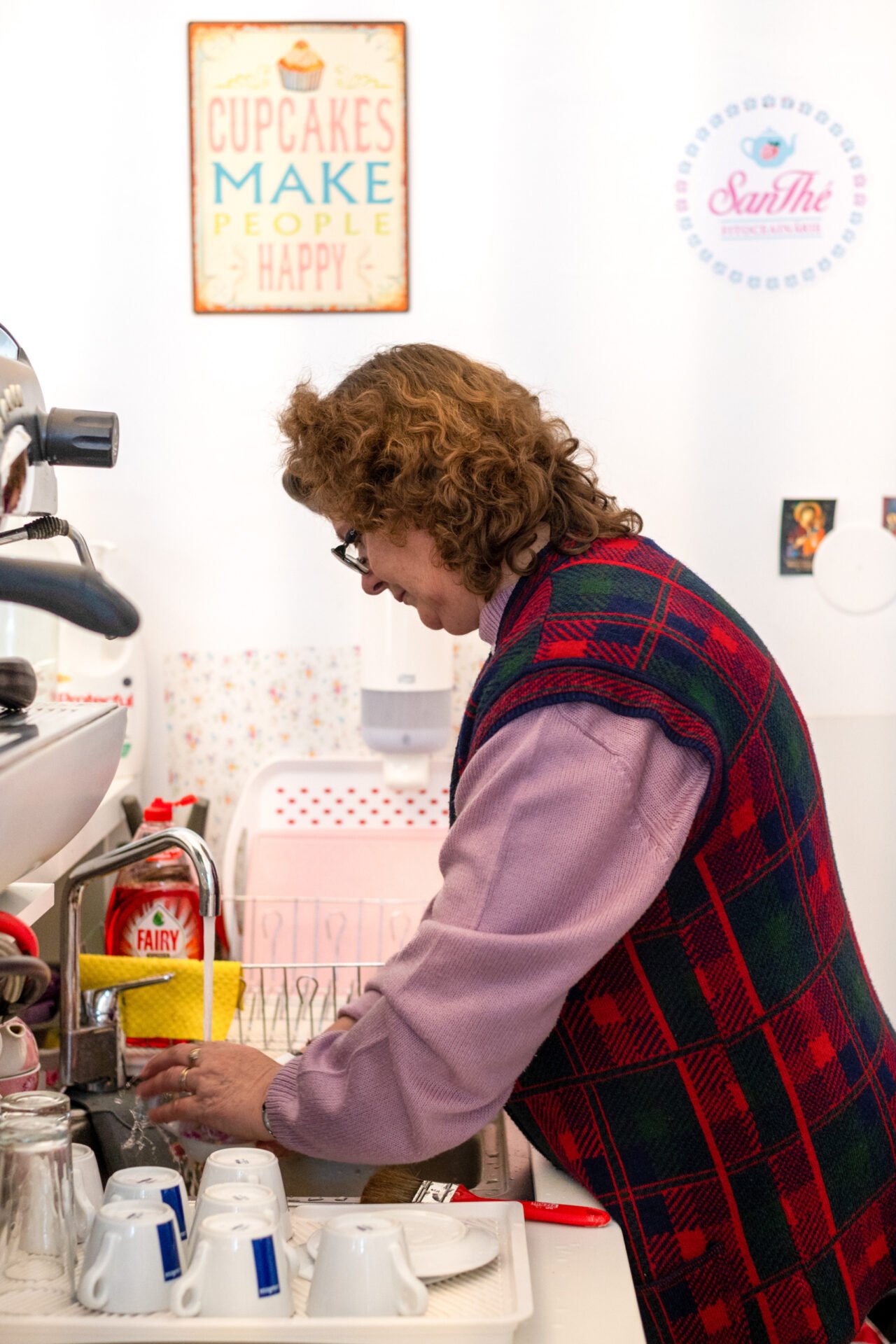
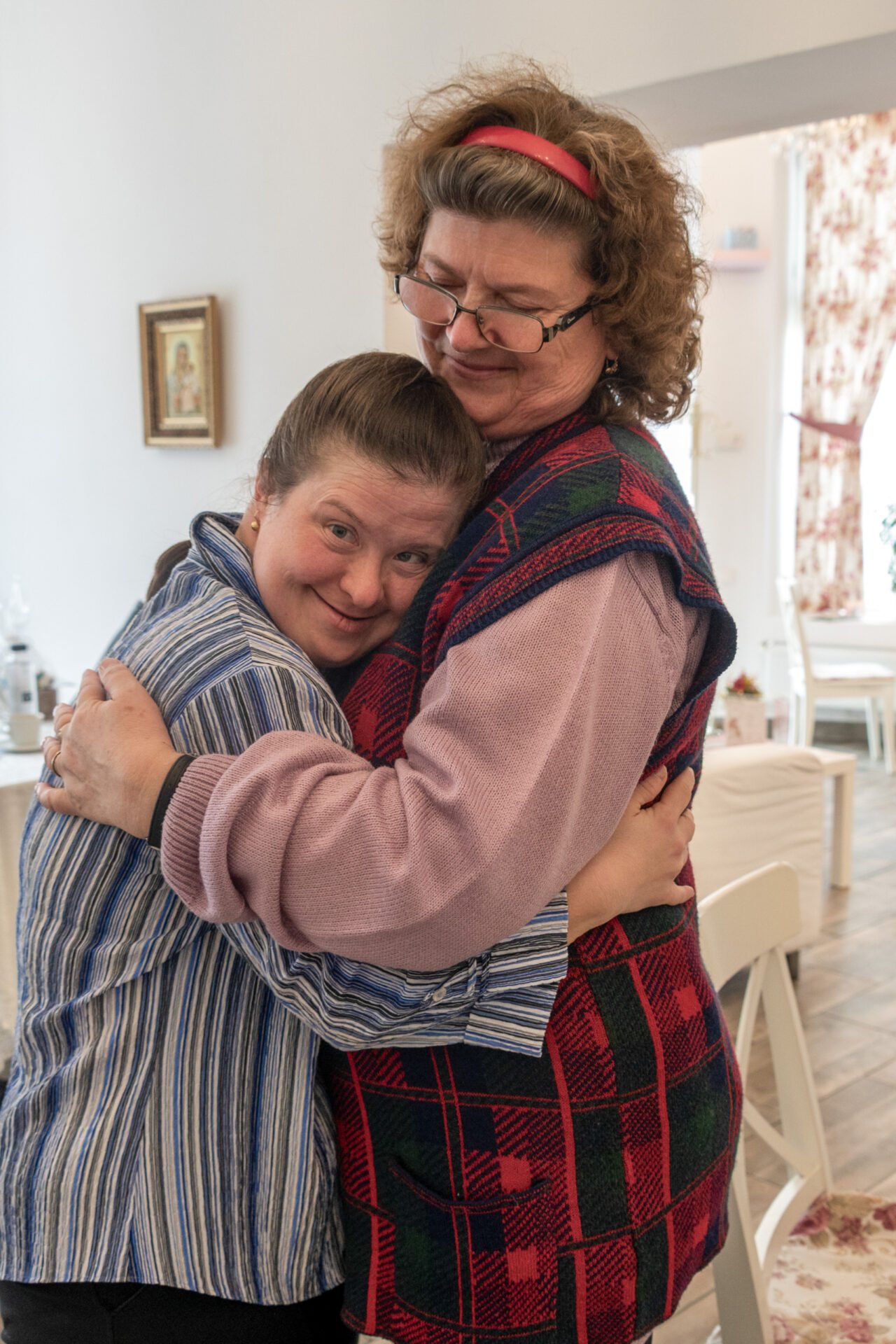
The Girl of Their Dreams
Mădălina was born on August 23, 1989, in a hospital in Bucharest. Her parents were at the peak of their happiness: they had a 5-year-old boy and were now about to meet the long awaited girl of their dreams. Although no one told her anything, Cristiana, the mother, noticed the medical staff treated her baby differently than her firstborn child. Doctors and students spent more time around her, whispering to each other. Sometimes they took her into another room for random examinations.
At home, two weeks after the baby was born, Cristiana noticed her daughter had a staph infection on her scalp. The same thing had happened to her son, but because the bumps seemed to be getting worse, Cristiana called the rescue. “The doctors told me I had to bring her back to the hospital because she has Down syndrome. What did this mean? – It’s a genetic disease, which we don’t know the causes of or future repercussions,” the mother remembers being told.
The second shocking moment quickly followed. Even 34 years later Cristiana’s voice breaks as she remembers the moment: “They told me to abandon her. How can a doctor say such a thing? When I came back two months later, and the doctor asked me if she was ‘downie’, I answered: ‘Yes, she is downie, and I don’t want you to consult her.’ I asked for another doctor.”
Cristiana not only did not abandon her daughter, but is doing her best to give her a regular life in which she can explore all her abilities and passions.
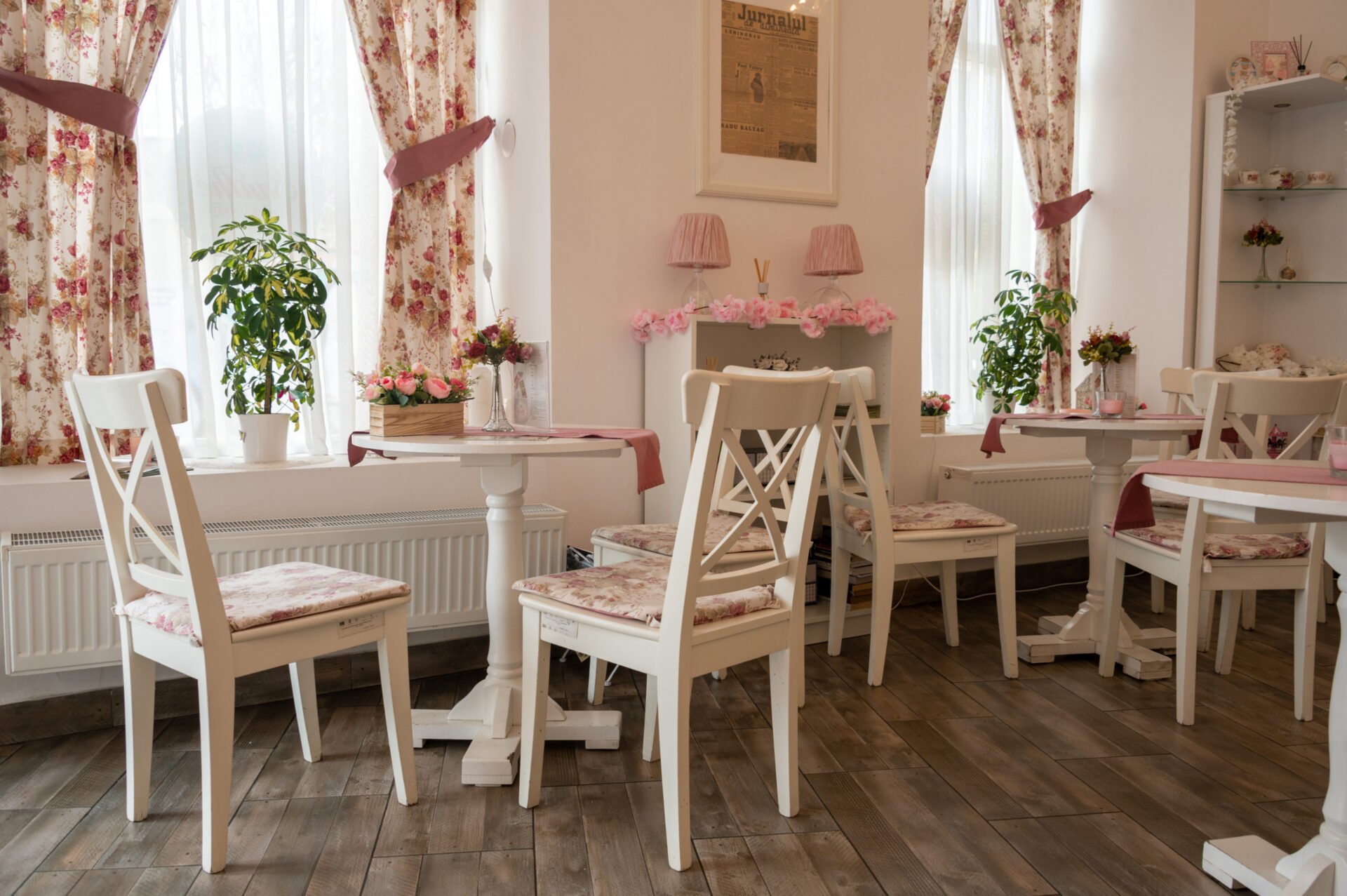
Swimming (and Life) Lessons
Mădălina’s grandmother, who took care of her, died in 2003. Cristiana quit her job and became her daughter’s main carer. She took her to school, dance classes, dressmaking and, in 2008, to a life-changing swimming lesson.
Far from being born with a natural swimming talent, on her first day at the Floreasca pool, Mădălina accidentally pulled another child to the bottom. He was okay, but both she and her mother cried from the shock. “I thought about how to proceed,” Cristiana remembers, “I asked her if we should leave or stay. And, still hugging, we finally stopped crying. ‘Let’s sit down,’ I said. And she replied: ‘No! I want to get into the water!'”
For two years, every week, rain or snow, Mădălina continued to go to the pool with her mother. She swam for pleasure until, in 2010, at a swimming competition, representatives of Special Olympics Romania saw her potential and offered to train her professionally. Five years later, Mădălina was selected to represent Romania at the Special Olympics World Summer Games in Los Angeles. It was her first time leaving her home country alone. She returned with a silver medal, which was only the beginning of her Olympic journey. Four years later, the young athlete competed in gymnastics at the Special Olympics World Summer Games in Abu Dhabi.
The girl who doctors said had no chance in life became a triple Olympic champion and a double Olympic runner-up, taking the gold medal in individual compound, beam, and floor and the silver medal in parallel bars and vault.
Sadly, the pandemic had a devastating effect on Mădalina’s trajectory. In 2020, she was supposed to participate in the Kazakhstan edition of the Special Olympics World Winter Games, this time in cross-country skiing, which she had started practicing on the side. Those plans did not happen, but, moreover, the isolation transformed her from a sociable and active young woman to a more withdrawn one. Her mother remembers her saying that she “didn’t know anyone anymore.”
Luckily, Georgeta stepped in. They had met her at a fashion show the Down Plus Bucharest Association had organized for young people with Down Syndrome who dreamed about becoming fashion designers.
Georgeta invited them to several of the association’s activities, and insisted that Cristiana not let her daughter isolate herself more. Ultimately, the two of them became members of the “Down Plus family,” as Cristiana calls it.
Mădălina and Cristiana have been working in the teahouse since the reopening, and continue to come with the same pleasure every time. This experience helped Mădălina a lot, her mother believes. “She feels useful, with her job she socializes more, and has learnt how to ask questions and listen to others. She is more responsible now.”
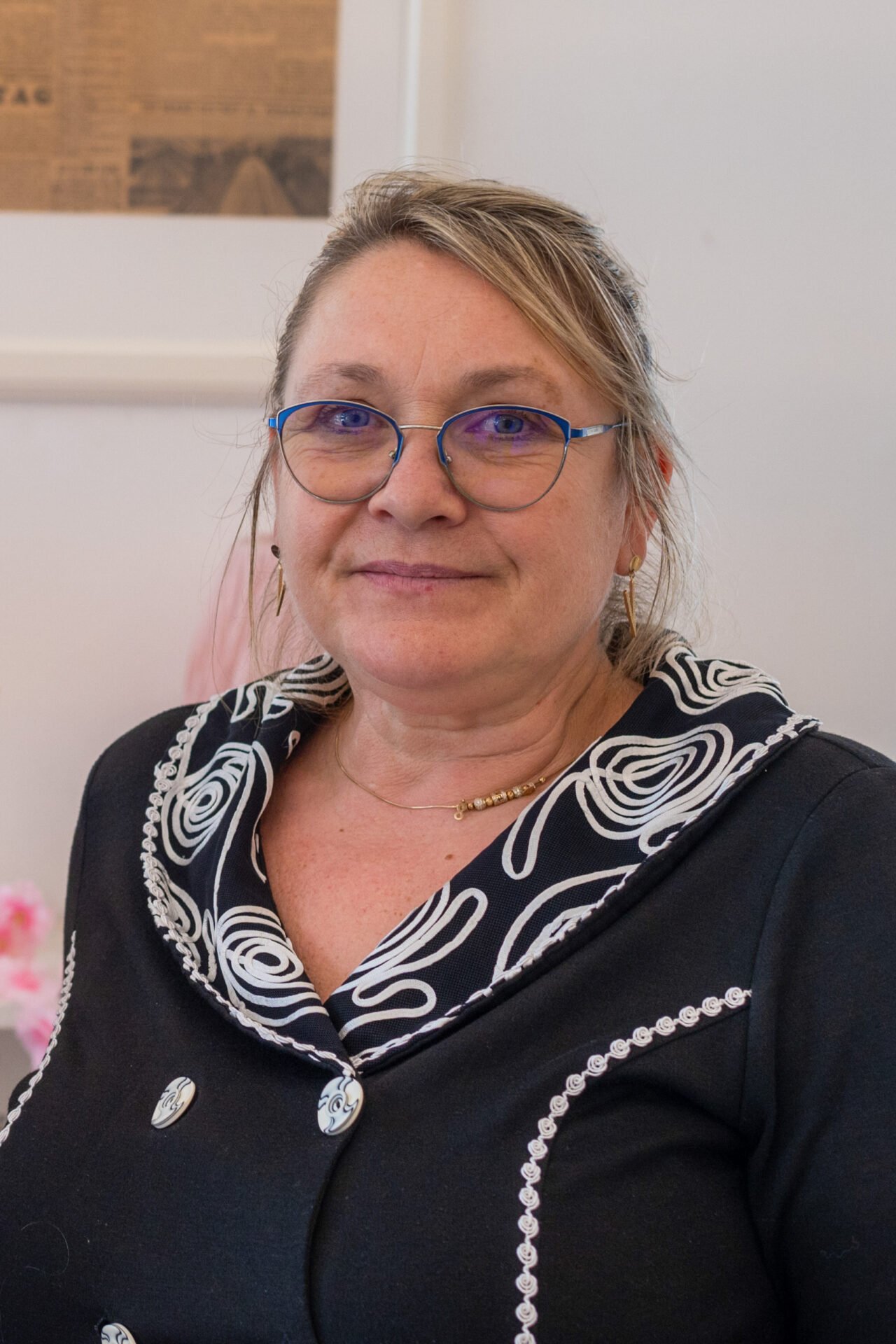
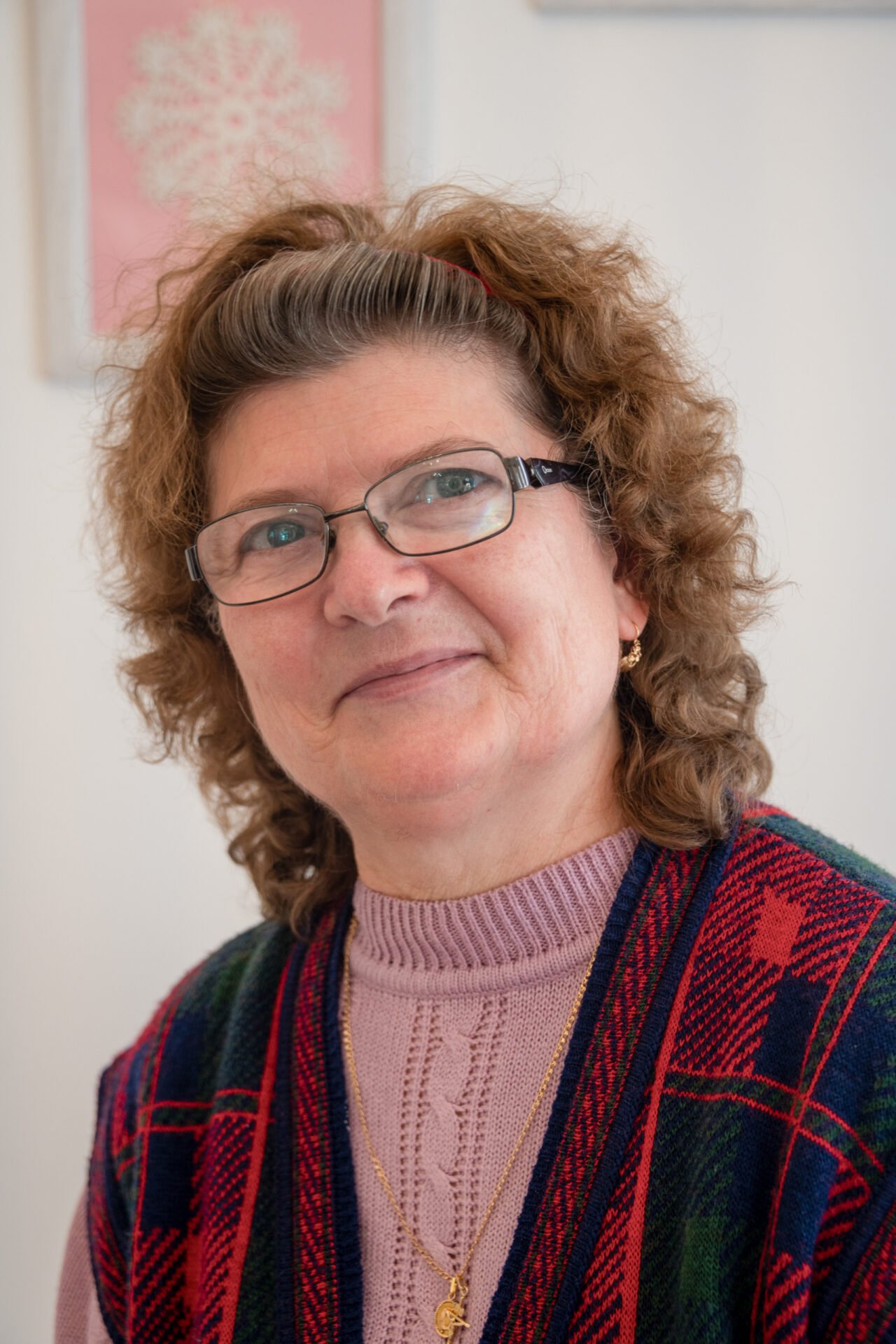
Dreaming of a Happy Ending
The future is uncertain for some young people with Down syndrome, but these parents are doing everything they can to create a place where they can thrive and feel safe. “Most of them are over 30 years old. Their physiognomy remains that of children, but it seems that their organs age much faster than ours,” says Cristiana. “And when – God forbid! – we won’t be around anymore, we want them not to be alone. We want to create a center where they can live and do activities. I am grateful to the Bucur family for everything they do for people with disabilities.”
Georgeta Bucur also dreams of a restaurant or a pizzeria where young people with Down syndrome can be employed with proper documents. “Only the change in legislation holds us back. If only I could hire them without ruining their pension files!”.
In the meantime, the young people with Down syndrome from the association continue to come to the teahouse. They put on their aprons and name tags to serve tea, coffee, and the cake of the day with a big smile.
Before leaving, I look at Mădălina, who makes the heart sign with her palms together. When you have time, stop by SanThé. It’s the only place in the country where you can drink “love tea” served by people who defy all odds.

